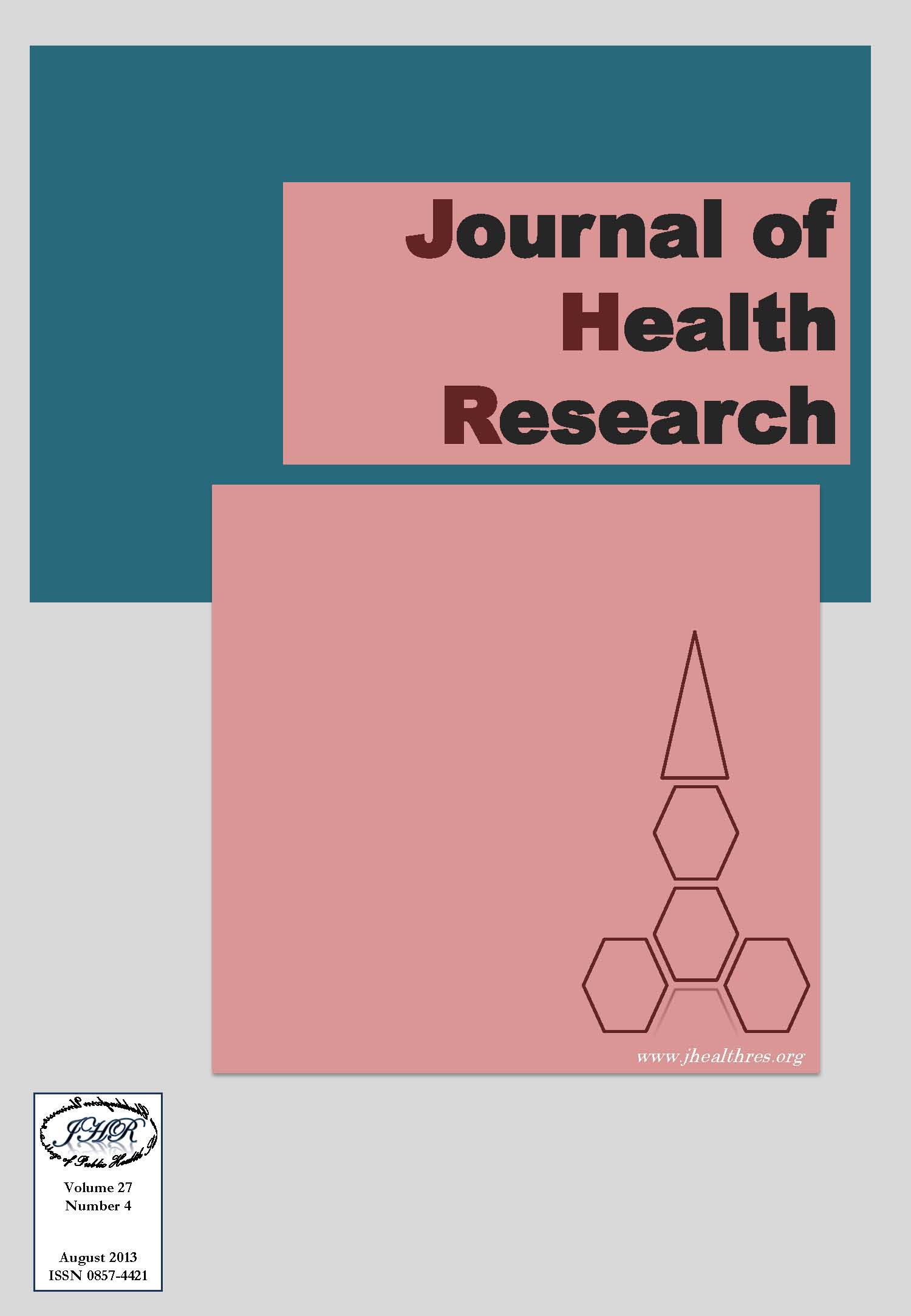Perceptions and Satisfactions Regarding to the National Policy Implementation for the Elderly: Case Study in Phrasamutchedi District, Samutprakan Province, Thailand
Keywords:
Elderly, National policy, Perceptions, Satisfactions, ThailandAbstract
A cross-sectional study to determine the perceptions and satisfactions towards the national policy implementation for the elderly was conducted. A total of 423 subjects 60 years or older were enrolled by systematic sampling from 8 sub districts of Phrasamutchedi district, Samutprakan province and data was collected thorough interview questionnaire by trained healthcare workers. The questionnaire was formulated to assess the perceptions and satisfactions of the elderly towards different services provided in the national policy for elderly. The population enrolled had 58.39% elderly females and 41.61% males, 46.09% were married and lived with spouses, 45.39% did not work and 43.97% did not have recurring income. The survey on the elderly perceptions and satisfactions showed that only some services had high perception (>60%) but many services had low perceptions (<35%). The study also revealed that elderly people in Phrasamutchedi district were not aware about many social welfare services available in the community. In some services though there was good perception, the access to the services were restricted. To understand the correlation between perception and satisfaction of the elderly towards different services, the statistical analysis was done using the Spearman rank correlation. With 95 percent confidence level we found that perceptions and satisfactions of the elderly towards social welfare services for the elderly in the allowance payment (p 0.042), annual health check up (p 0.047), religious services (p 0.020), providing recreational activities (p 0.032), elderly community centers (p 0.018) and integration of elderly in groups clubs (p 0.042) on special day had significant correlation. The rest of the services did not show any correlation between perceptions and satisfactions. The factors which influenced the perceptions and satisfactions were tested using a chi square test and we found that marital status (p 0.000), education level (p 0.000), type of work (p 0.007) and source of income (p 0.003) showed significant association. Though some services had good perception, the access to the services was restricted and therefore reduced utilization of the services. To enhance the perception and utilization of many services, suitable and effective methods should be found to increase the participation of the elderly. The areas that need more focus are: the services need to be better linked to each other, improved access to the services, and must be coordinated along with local agencies or bodies to improve the utilization of the elderly services.







